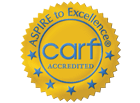Klonopin Abuse
What is Klonopin?
Klonopin, or clonazepam, is a potent prescription benzodiazepine, or “benzo”. Klonopin is usually prescribed by doctors to treat seizures, anxiety and panic disorders. Typically, it is comparable to Xanax in it’s uses and effects. Despite Klonopin being a helpful medication for some, this medication is powerfully addictive and users can develop a physical dependence in as little as a few weeks. Even those who follow doctor’s instructions may develop a strong tolerance and withdrawal symptoms. Abruptly stopping your Klonopin prescription is dangerous and potentially life-threatening if you are not safely weaned off.
Doctors will sometimes offer Klonopin for more serious psychological issues such as schizophrenia, manic-depression or Tourette’s. Klonopin provides a feeling of relaxation, but it is a very slow acting drug.
Effects of Klonopin
Like all benzos, Klonopin has many effects on the brain – both good and bad. While it is true that it will reduce anxiety, cause the body to relax and even produce a mild feeling of euphoria, there are significant side effects that can occur even when the drug is used as prescribed. Extensive Klonopin use reduces the activity of the brain cells. This causes an overall decrease in cognitive function, including the ability to form new memories. Long term users of Klonopin may find themselves struggling to remember things.
Common Side Effects of Klonopin
- Drowsiness
- Confusion
- Sweating
- Headaches
- Tremors
Effects of Klonopin Abuse
Long term use of Klonopin can be overall detrimental to the body, even if it is not abused. These are just some of the effects that a user may experience if they abuse, or use Klonopin for too long.
- Memory Loss
- Birth Defect in Unborn Babies
- Aggression or Hostility
- Anti-Social Behavior
- Seizures
- Withdrawal Symptoms even during continued use
- Vertigo
Should I seek Treatment for Klonopin?
Despite abuse of this medication being common – over 20 million prescriptions are still written for Klonopin every year. Many people who abuse the drug find it in their own home or get it from a family member, without the help of street dealers.
If you or someone you love may be abusing Klonopin, look out for some red flags:
- Drug-Seeking or Self-Destructive Behaviors
- Slurred Speech
- Constant Drowsiness
- Memory Issues
- Doctor Shopping
- Hallucinations or Paranoia
If you or someone you know is struggling with substance abuse, it is important to get help. Detoxing from benzos can be very dangerous if not monitored medically by a professional like the ones at Sound Recovery.
Medical Detox
In the past, Klonopin was detoxed with the assistance of other benzos. This is no longer a practice done today. There are increased risk of detoxing one benzo with another, such as:
- All benzos, like Klonopin, are addictive drugs that run the risk of grand mal seizures and death, just like alcohol.
- Using another benzo during withdrawal sends the addiction-replacement-message that it’s okay to substitute one benzo with another.
- Non-addictive detox medicines that also prevent seizures, are frequently used in place of addictive ones whenever possible (i.e. pregabalin in place of a benzo)
Pregabalin is typically a better option for medical detox because:
- It’s non-addictive
- Reduces risk of grand mal seizures
- Decreases craving
- Decreases drug seeking behavior
- Decreases worry and increases relief
- Decreases agitation and increases calm
- Decreases restlessness
- Decreases fatigue
- Improves concentration
- Decreases irritability
- Decreases muscle tension and increases comfort
- Decreases panic, anger, or hate attacks
- Decreases irrational fear
Medications such as pregabalin and its relatives are used to assist Klonopin addiction recovery during aftercare for coexisting conditions such as:
- Generalized Anxiety Disorder
- Obsessive-Compulsive Disorder (OCD)
- Panic Disorder
- Post-Traumatic Stress Disorder (PTSD)
- Social Phobia (or Social Anxiety Disorder)
- Insomnia
Medication-assisted detox and rehabilitation, without recovery-sensitive supportive therapy, is far from the ideal road to recovery. Medical detoxification with a concurrent Klonopin dependence recovery program is your ticket to sustained-recovery. The medical staff at Sound Recovery is trained in understanding the appropriate ways to help our guests to safely end their dependence on benzos. With the harsh withdrawal symptoms, it is important to get the help you need.
Klonopin Withdrawal Symptoms
Klonopin can produce severe withdrawal symptoms, including:
- Nightmares
- Weight Loss
- Vision Problems
- Seizures
- Tremors
- Fatigue
- Delirium
- Irritability
- Confused or Strange Perceptions
- Hallucinations
- Panic, anger, or hate attacks
The more one uses Klonopin, the more one experiences the aforementioned side effects associated with Klonopin withdrawal. Many treatment professionals consider addiction to prescription and street Klonopin to be one of the most difficult to overcome. In fact, unsupervised, abrupt withdrawal from Klonopin can lead to seizures or toxic psychosis and sometimes death.
What Happens After Medical Detox?
Following medical detox at Sound Recovery, guests will begin a comprehensive, collaborative approach to substance abuse treatment designed to support physical, mental and spiritual wellness. We offer a variety of detox options for treating drug addiction beyond just Klonopin. Our program helps to promote a lasting, sober lifestyle through recovery. Our addiction specialists, from our therapists and case managers to our facility staff, are dedicated to providing the best in care and support. Our holistic, evidence-based approach to psychotherapy incorporates individual and group sessions. We use other holistic methods, such as art, music and animal therapy to help our guests to learn to express themselves and communicate. Our treatment features state-of-the-art activity, movement, and adventure therapies to create one program that treats mind, body, and spirit. At Sound Recovery, we believe that emotional healing is just as important as physical healing.
Guests may begin their recovery journey in our residential inpatient program and continue with us through PHP, IOP, OP, and sober living at our graduate housing residences. At Sound Recovery, the guest is always our top priority, and we consistently do all we can to effect lasting change, that they might continue to lead healthy, sober lives long after they have left our care. This is not just our goal, but our mission.
Reach Out
Change your life with one call.
We can help.









